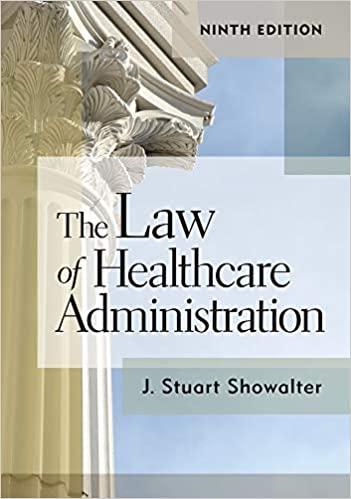Question
The Hardlucks' purchased a home in Portsmouth on June 1, 2017 for $300,000. In order to do so, they borrowed $200,000 from Bank of America,
The Hardlucks' purchased a home in Portsmouth on June 1, 2017 for $300,000. In order to do so, they borrowed $200,000 from Bank of America, secured by a first mortgage lien on their home. Although the promissory note and mortgage securing same were validly executed and enforceable, the bank's lawyer neglected to record the mortgage at the registry of deeds. The bank did, however, record a UCC financing statement with the New Hampshire Secretary of State, evidencing a security agreement on a central air conditioning system that the Hardlucks' installed with part of the mortgage money they obtained.
In order to build a swimming pool, the Hardlucks'secured a home equity loan with Citizens' Bank on April 1, 2019 in the amount of $50,000, which they fully used for pool construction. On that date the home equity mortgage was properly recorded at the Rockingham County Registry of Deeds. The pool company actually completed their work on March 25, 2019, but the Hardlucks' neglected to fully pay the pool company for their work; consequently the pool company sued and recorded a mechanics lien on their property on May 1, 2019. On January 1, 2020 Citizens' Bank conducted a foreclosure auction on Hardlucks' house for theirfailure to pay their home equity loan. Because of the holiday, no bidders were present at the foreclosure auction, other than representatives of Citizens' Bank. The Bank bought the property at the auction (they bid $50,000) and subsequently sold it to the Smith's for $175,000. Citizens' retained the entire sales price, arguing that since they actually bought the property at the auction, they are under no obligation toremit the excess funds to anyone. Both the pool company and Bank of America claim that their lien has a higher priority than Citizens' mortgage, therefore the Smith's own the property subject to their liens. At the very least, Bank of America seeks to remove the air conditioning system.
The Hardlucks' make 2 claims: First that the citizens' foreclosure auction was invalid because it was unfair to the them (the debtor) to conduct an auction on New Year's day, since it is unlikely very many potential bidders would attend; and secondly, since Bank of America neglected to record their mortgage, the Hardlucks' underlying debt to them is extinguished. Smiths' have sued their lawyer for her failure to protect their interests when they acquired the property.Finally, everyone is making a claim for the excess proceeds generated from the mortgage auction.
To make matters worse, an old deed for the property discloses that in 1940, one John Johnson was given the right by the then owner (personal to Johnson only) to enter the property "to cut wood". In conducting the title examination to this property, the Hardlucks' lawyer (as well as the Smith's lawyer) failed to discover this right. No release or discharge of that right is recorded. Please sort out this mess by analyzing each of the parties' respective rights and obligations.
Step by Step Solution
There are 3 Steps involved in it
Step: 1

Get Instant Access to Expert-Tailored Solutions
See step-by-step solutions with expert insights and AI powered tools for academic success
Step: 2

Step: 3

Ace Your Homework with AI
Get the answers you need in no time with our AI-driven, step-by-step assistance
Get Started


